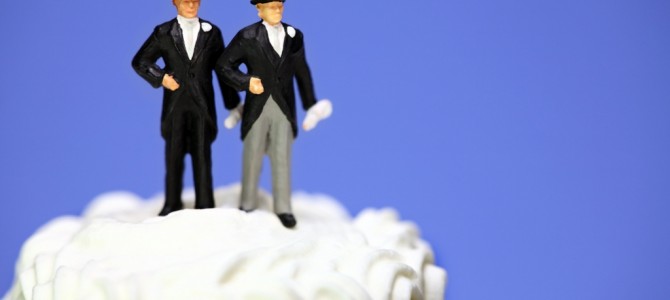Why is it that the media regularly adorns the term “religious freedom” with superfluous quotation marks but not terms like “environmentalist” or “civil rights” or “marriage equality”—or any other of the many debatable issues of American political discourse?
Well, maybe unbiased journalists feel a responsibility to intimate to readers that religious freedom is considered a dubious assertion by one side of the debate. And this would be a reasonable editorial decision if it were employed consistently. It’s not. What’s more likely is that editors and journalists consider the term “religious freedom” dubious because anything that strikes them as “discriminatory” or stands in way of “progressive” moral aims is by default illegitimate.

The quotations marks themselves are not big deal, of course, but they are a reflection how the topic is viewed by secular America and too-often covered by the media, which is to say very badly.
The “controversial” Indiana law, which passed with a wide margin, has provoked the sort of over-the-top dismay you’d expect from certain quarters. The Left has one construct for political debate these days: forward-looking, open-minded lovers of diversity versus bigots. This is the crudest but most effective case to make to the public. It appeals to good will of people. It’s also the most unintellectual and misleading. You will remember Ron Fournier likening evangelical florists concerned with their faith to people who fought to bar young black girls from going to public schools in Little Rock, Arkansas? It’s a brand of historically illiterate, morally obnoxious, and histrionic accusation that tells us there’s almost certainly not going to be any thoughtful debate on the matter.
The focus of the media centers on the idea that Indiana law gives businesses a “license” to “discriminate” against patrons of public accommodations because of their “sexual orientation.” (If we’re going to play this game, all of those words deserve their own quotation marks.) But, in reality, the law prohibits state or local governments from substantially burdening a person’s ability to exercise their religion—unless the government can show a compelling interest that the action is the least-restrictive means of achieving it.
So by any standard the law concerns itself with religious freedom, not “religious freedom.” There may strong substantive legal arguments against it, I don’t know. Even if you disagree with how far these protections should go, this sort of legislation was precipitated by genuine concerns. There is a conflict emerging in a country, where newly carved-out rights crash against the traditional rights of others. There is a large contingent in American politics that values coercing conformity over the First Amendment. That should be as offensive as bigotry. The evangelical in Colorado lost something real because of his faith, while the gay couple would have lost nothing by taking their business down the block.
I believe gay marriage should be legal. I don’t believe—and I imagine I’m not alone—that forcing a shopkeep to bake a cake for your gay wedding (or lose his business) should supersede one of the most fundamental rights offered in a genuinely liberal nation. And, let’s be honest, the latter is exactly what some people in the gay political community are trying to accomplish. This is a legitimate concern and, as things stands, probably one of most consequential debates about our future. No quotations marks needed.









